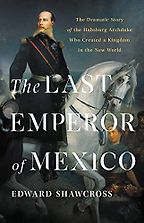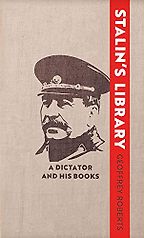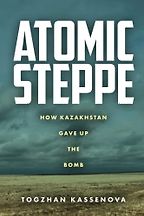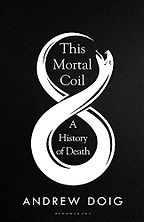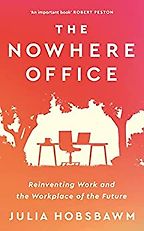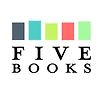It’s a great time to be a reader of nonfiction, with an array of books coming out on a variety of topics and catering to different reading tastes and levels of knowledge. Even just looking at books published in the first two months of 2022, there are hundreds to choose from and it’s hard to get a handle on which ones are worth your time. In this article, I’ve collected together all the ones I thought looked interesting and try to give a flavour of them, so you can decide if they appeal to you. One useful tip: with an Amazon Kindle—whether you own one or just download an app onto your phone or desktop—you can order a sample (the first 10%) of a book which is usually enough to get a good sense of it. It’s a strategy that I recommend for anyone because people’s taste in books—both in what they like to read about and how they want that information presented to them—varies wildly.
History Books
It’s looking, so far, like a good year for history, with a nice selection of books published in the UK in the first couple of months of 2022 (and more to come throughout the spring: I’ll do an update in early March). The Last Emperor of Mexico particularly appealed to me, just the madness of a Habsburg archduke, in line to the Austrian throne, somehow thinking that taking on this position thousands of miles away was a good idea, and the general setting, in 19th-century Mexico, a history I’m not familiar with. While we’re on the Habsburg family, there’s also a new biography of Maria Theresa, the Holy Roman Empress who ruled swathes of Europe for 40 years in the 18th century as well as having 16 children. It’s by German historian Barbara Stollberg-Rilinger, a specialist on the Holy Roman Empire, and quite apart from insights it gives into women and power is quite a nice route into the complicated European history of that period. (Afterwards, if you want to move into the 19th century and Germany’s Second Reich, Katja Hoyer’s Blood and Iron: The Rise and Fall of the German Empire, was published in the US in December).
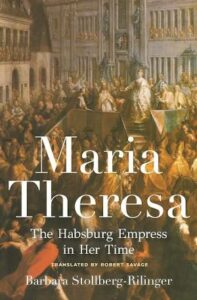
On British history, Penelope Corfield has a book out on The Georgians (normally neglected at school, but that’s a pity: the 18th was a lively and important century, with lots going on). There’s also Conquering the Ocean, by archaeologist Richard Hingley, on the Roman invasion of Britain (the first question to ask: why did they do it?). Edging back into the Bronze Age, How to Build Stonehenge by Michael Pitts also looks really interesting.
On social and cultural history, a book that’s been getting quite a bit of reviewer attention is Worn: A People’s History of Clothing, by Sofi Thanhauser. Unlike the author, I’m not someone who delights in clothes per se, but I do love anything that sheds light on how people lived in the past and clothing is a vital part of that (I now know, for example, what kind of underpants people wore before stretch fabrics were available). Another book that may interest some is Sweat: A History of Exercise by Bill Hayes. I wasn’t quite sure what to make of the book: it reads more like a book about writing a book about the history of exercise than a book about the history of exercise—the author goes to the library to do his research between mad sessions at the gym—but quirkiness is good, I guess.
New books on Russian history include two Stalin-related ones, the Georgian dictator remaining ever popular as a subject of interest. Not surprisingly given my job, I was particularly intrigued by the one on his voracious reading habits: Stalin’s Library: A Dictator and His Books. It’s by British historian Geoffrey Roberts, author of several books on the Russian leader (plus one on Zhukov). The other book is only tangentially related to Stalin, and is more of an insight into the agony of intellectual life under his rule: Playing with Fire: The Story of Maria Yudina, Pianist in Stalin’s Russia by Elizabeth Wilson. You’ll have come across Maria Yudina (or a fictionalized version of her) if you’ve watched the movie Death of Stalin.
When things started going wrong in Kazakhstan earlier this year, I started dipping into a few books about it and found its history fascinating. The vast, wide-open steppe made it a place of herders for millennia, but during the Soviet era it was also a convenient location for deporting entire populations, locating gulags, and carrying out nuclear testing, which is what Atomic Steppe: How Kazakhstan Gave Up the Bomb focuses on. It’s by Togzhan Kassenova, a Fellow at the Carnegie Endowment for International Peace in the United States, but also a Kazakh. She writes of her “immense gratitude for the privilege of telling the story of my land and its people.” It’s scholarly and yet touching. Also, as many world powers seem to be heading closer to war rather than away from it, it’s perhaps hopeful that in the not-too-distant past a country that had more than 1,000 nuclear weapons when it became independent ended up nuclear-free.
If you’re interested in Asian history, Eugene Y. Park, Professor in History at the University of Nevada, covers the entire history of Korea across the millennia—from the earliest humans to arrive there to the present day—in Korea: A History, a nice survey of a country that’s often overlooked compared to its bigger neighbours but important to understanding not only East Asia but successful transitions to democracy.
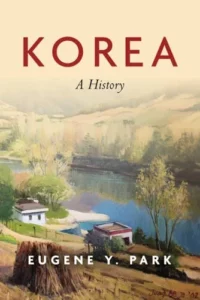
A new book of Chinese history, Kingdom of Characters: The Language Revolution That Made China Modern, looks at the script and the people who made possible its simplification and adaptation in the 20th century (wonderful and evocative as Chinese characters are, having thousands of complex symbols representing words has drawbacks). I recently read a thriller set in Tibet at the time of its initial invasion by China in 1950-1 by Lionel Davidson, so I also found myself very drawn to a book about that whole period in Tibetan history by Jianglin Li: When the Iron Bird Flies: China’s Secret War in Tibet. (Also: if you want an introduction to the other outlying region the Chinese Communist Party has treated very badly, Xinjiang, In the Camps: Life in China’s High-Tech Penal Colony by Darren Byler is out in paperback in February).
On India, the distinguished historian Ramachandra Guha—whose book India After Gandhi has been frequently recommended on our site—has a new book: Rebels Against the Raj. It’s about the foreigners who gave up everything to help India gain independence. It’s written partly as an antidote to a world that’s currently “governed by paranoia and nationalist xenophobia, with the rise of jingoism in country after country,” Guha says.
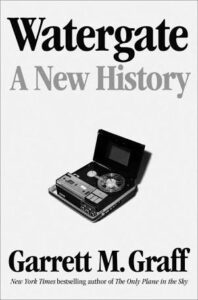
Excitingly, Garrett Graff, who put together a brilliant oral history of 9/11 (the best audiobook of 2020) has done the same for the Watergate scandal. His Watergate: A New History, is out on the 15th of February. Also of interest in contemporary history is They Said They Wanted Revolution: A Memoir of My Parents by Neda Toloui-Semnani, about the Iranian Revolution. It’s a heartbreaking tale, very much also about her feelings as she goes about her day and does research on her family and the past.
Science Books
One thing that really struck me about the books being published in early 2022 is how many science books are coming out that are fun to read, often by top scientists. This Way to the Universe: A Journey into Physics is a nice introduction to physics (including the history) by American theoretical physicist Michael Dine. The End of Genetics looks at where we are in genetics and is by David B. Goldstein, Professor of Genetics and Development and director of the Institute for Genomic Medicine at Columbia University Medical Center. It’s a gripping and accessible book (though his conclusions are a little scary, especially as I carry a genetic mutation myself). There’s also a book about nuclear fusion—potentially the answer to all our energy problems, but still a work in progress—by Alain Bécoulet, Head of Engineering at ITER, the world’s largest fusion experiment. It’s called Star Power.
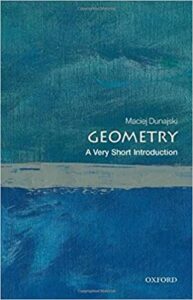
There are also some nice introductory books. Geometry: A Very Short Introduction is by Maciej Dunajski of the University of Cambridge and is ready to take anyone along for the ride: “I assume little prior mathematical knowledge…but you should be willing to use a pencil, paper, compass and ruler as you read”. If astronomy interests you, MIT Press has a new book in its ‘Essential Knowledge’ series: Supernova by Or Graur.
One of my favourites is an upbeat book about death: This Mortal Coil: A History of Death by biochemist Andrew Doig. The first chapter is entitled “What is Death?” which turns out to be a great starting point for a highly readable book that really does put the work of the Grim Reaper in perspective.
If skeletons are your thing, forensic anthropologist Sue Black’s latest book is out in paperback: Written in Bone: Hidden Stories in What We Leave Behind. It won the ALCS Gold Dagger for Non-Fiction award last year, awarded by the UK’s Crime Writers’ Association. While we’re on the subject of crime, A Taste for Poison: Eleven Deadly Molecules and the Killers Who Used Them by scientist, teacher and writer Neil Bradbury has gone down very well with readers (including Sue Black) as both entertaining and informative.
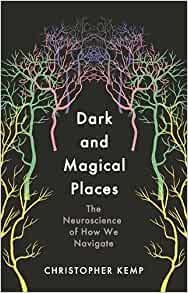
Dark and Magical Places is really fascinating on the neuroscience of navigation, written by someone who seems to have an even worse sense of direction than I do, scientist and author Christopher Kemp. Another book that’s been very well-received is Otherlands by palaeobiologist Thomas Halliday, taking us on a trip into pre-human history and written almost as a work of nature or travel writing. If you’ve always wondered what it would have been like to live in Alaska during the Pleistocene or Liaoning in China during the Cretaceous, this is the book for you.
Psychology Books
I always look out for psychology books as I find it fascinating reading about what my brain might be up to and am always slightly battling anxiety. The Expectation Effect: How Your Mindset Can Change Your World by science writer David Robson looks at how our expectations about what will happen affect outcomes (short answer: quite a lot). Emotional: The New Thinking About Feelings by theoretical physicist and bestselling author Leonard Mlodinow is told with gripping stories (even if, thanks to Lisa Feldman Barrett, I already know some of the underlying science he’s conveying).
Business Books
A crisis can also be an opportunity, and one of the notable effects of being forced to work from home during the global pandemic has been to shine the spotlight on whether working in an office every day of the week is something we want or indeed need—and if it’s not, to make sure we don’t go back to how things were before. This is something Julia Hobsbawm has been looking at as Chair of the Demos Workshift Commission. As she pointed out on taking charge, “Covid presents a once-in-a-generation opportunity to shift the dial on the manifest problems around working life.” The book promises to be an important contribution at a pivotal moment.
Get the weekly Five Books newsletter
Economist journalist Sebastian Mallaby takes on venture capital in The Power Law: Venture Capital and the Art of Disruption. Venture capitalists do determine our future in many ways, so this is well worth reading. For me, it’s the difference between Five Books (run on a shoestring but freely available to any English speaker anywhere in the world) and Blinkist (which has raised over $35 million from venture capitalists, and constantly bombards me with Twitter ads about what Elon Musk is reading). The Founders by Jimmy Soni is a book about Paypal and its billionaire founders–Elon Musk, Peter Thiel and Reid Hoffman—though its subtitle “The Company that Made the Modern Internet” suggests that it might be a bit too boosterish for my own tastes.
Literary Books
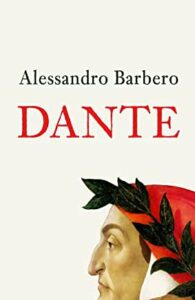
For the more literary-inclined readers of nonfiction, there’s a newly translated biography of Dante by Alessandro Barbero (though bear in mind that Dante is so embedded in Italian culture, that the book may be a little too granular for the Anglophone reader who isn’t quite as familiar with The Divine Comedy). Also, if you’ve never read Ulysses by James Joyce, there’s a really nice guide to reading it just out by Patrick Hastings, who runs the Ulysses.com site. He also gave us some tips on how to embark on this project in a Q&A. Maybe if there’s another lockdown I’ll finally be able to knock Ulysses off my bucket list, a project I last attempted when I was 22.
Part of our best books of 2022 series.
February 5, 2022. Updated: June 8, 2023
Five Books aims to keep its book recommendations and interviews up to date. If you are the interviewee and would like to update your choice of books (or even just what you say about them) please email us at [email protected]
Five Books interviews are expensive to produce. If you've enjoyed this interview, please support us by donating a small amount.
